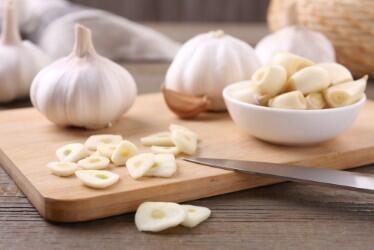Getting your Trinity Audio player ready...
Orange: Carotenoids are beneficial for skin and eye health
Orange vegetables and fruits, including carrots, sweet potatoes, pumpkin, mango, orange, and apricot, are an excellent source of carotenoids, compounds that give them their orange color. Carotenoids are antioxidants (mainly beta-carotene, which is prevalent after heating) that function as the building blocks of vitamin A in the body.
Health benefits:
• Strengthening the immune system and reducing the risk of infections.
• High potassium content (especially in sweet potatoes and oranges) which helps balance blood pressure.
Examples of menu combinations:
• Oven-roasted carrots
• Orange soup consisting of pumpkin and sweet potatoes
• Mango salad which can be combined with green leaves
Purple: the perfect antioxidants for anti-aging
Purple vegetables and fruits, such as blueberries, purple grapes, beets, red cabbage and eggplant, are rich in anthocyanins, which are powerful antioxidants that protect the body's cells from oxidative damage.
Health benefits:
• Improved blood vessel function, which reduces the risk of stroke and heart disease.
• Improved memory and concentration. Some studies show a link between blueberries and improved brain function.
• Slows down the aging process and reduces chronic inflammation in the body.
Examples of menu combinations:
• Beetroot in juice or smoothie – helps improve endurance and can increase athletic performance
• Red cabbage salad with nuts and lemon dressing
• Roasted eggplant with olive oil and tahini
Greens: Body cleansers and strength boosters
Green vegetables such as broccoli, spinach, cabbage, kale, zucchini, peas and avocado are rich in chlorophyll. The green pigment has anti-inflammatory benefits. In addition, they are a source of iron, calcium, folate, and dietary fiber.
Health benefits:
• Support the immune system with high levels of vitamins such as C and vitamin K
• Improve digestive function thanks to fiber
• Maintain normal vision with the antioxidant lutein
Examples of menu combinations:
• Combine greens such as spinach, kale, and avocado in a smoothie that can contain fruit and yogurt
• Green stir-fry with broccoli, peas and zucchini
• Pasta with homemade pesto sauce from basil leaves
Red: Strong defense for heart health
Red vegetables and fruits such as tomatoes, peppers, strawberries, pomegranates, watermelon and cherries contain lycopene, quercetin and anthocyanins. These components have a positive effect on heart health and reduce the risk of cancer.
Health benefits:
• Lycopene, found in tomatoes, has been found to reduce the risk of prostate cancer and heart disease.
• Pomegranates contribute to reducing high blood pressure thanks to their powerful antioxidants.
• Reducing skin damage from sun exposure.
Examples of menu combinations:
• Fresh tomato sauce for pasta or pizza
• Tomato-based soup and whole rice
• Strawberry salad with nuts and goat cheese
• Pomegranate berries as a snack or as a topping for yogurt
Whites: The healthy factor hidden in plain sight
White vegetables and fruits, such as onions, garlic, cauliflower, mushrooms, and bananas contain sulfur compounds called allicin that help fight infections and strengthen the body.
Health benefits:
• Garlic and onions contain a high amount of allicin that fights bacteria and a variety of diseases.
• Cauliflower contains a high amount of vitamin C and dietary fiber.
• Bananas and potatoes are rich in potassium, which contributes to preventing high blood pressure.
Examples of menu combinations:
• Cauliflower puree or simply cauliflower
• Roasted garlic cloves or confit (cooked in olive oil) as a side dish to a main course
• Homemade energy snack consisting of banana and peanut butter
In conclusion - in order to maximize health benefits, it is important to consume vegetables and fruits of all colors every day. Of course, in addition to vegetables and fruits, it is important to eat a variety of foods from the carbohydrate, protein, and fat groups.
Get the Ynetnews app on your smartphone: Google Play: https://bit.ly/4eJ37pE | Apple App Store: https://bit.ly/3ZL7iNv
Lena Harmatz is a clinical dietitian and director of the eating disorders clinic at Maccabi Health Services, Southern District






